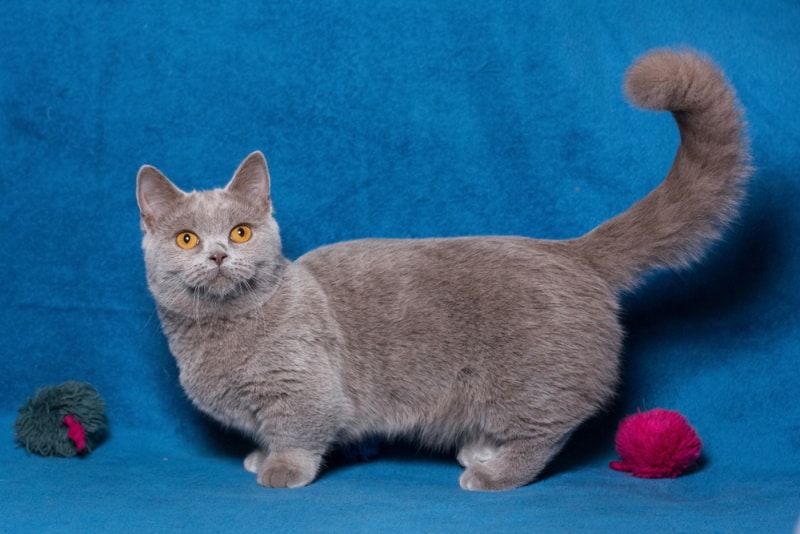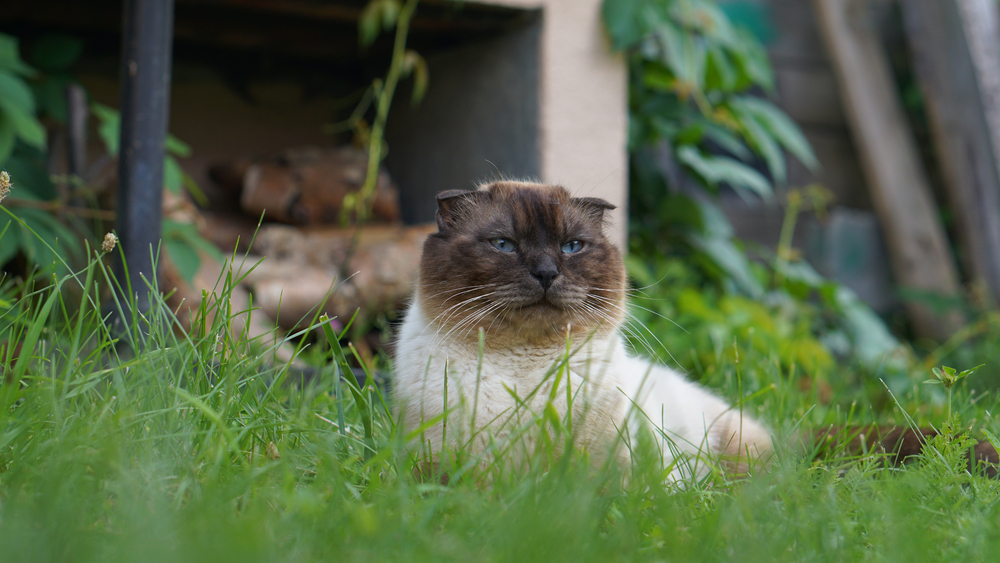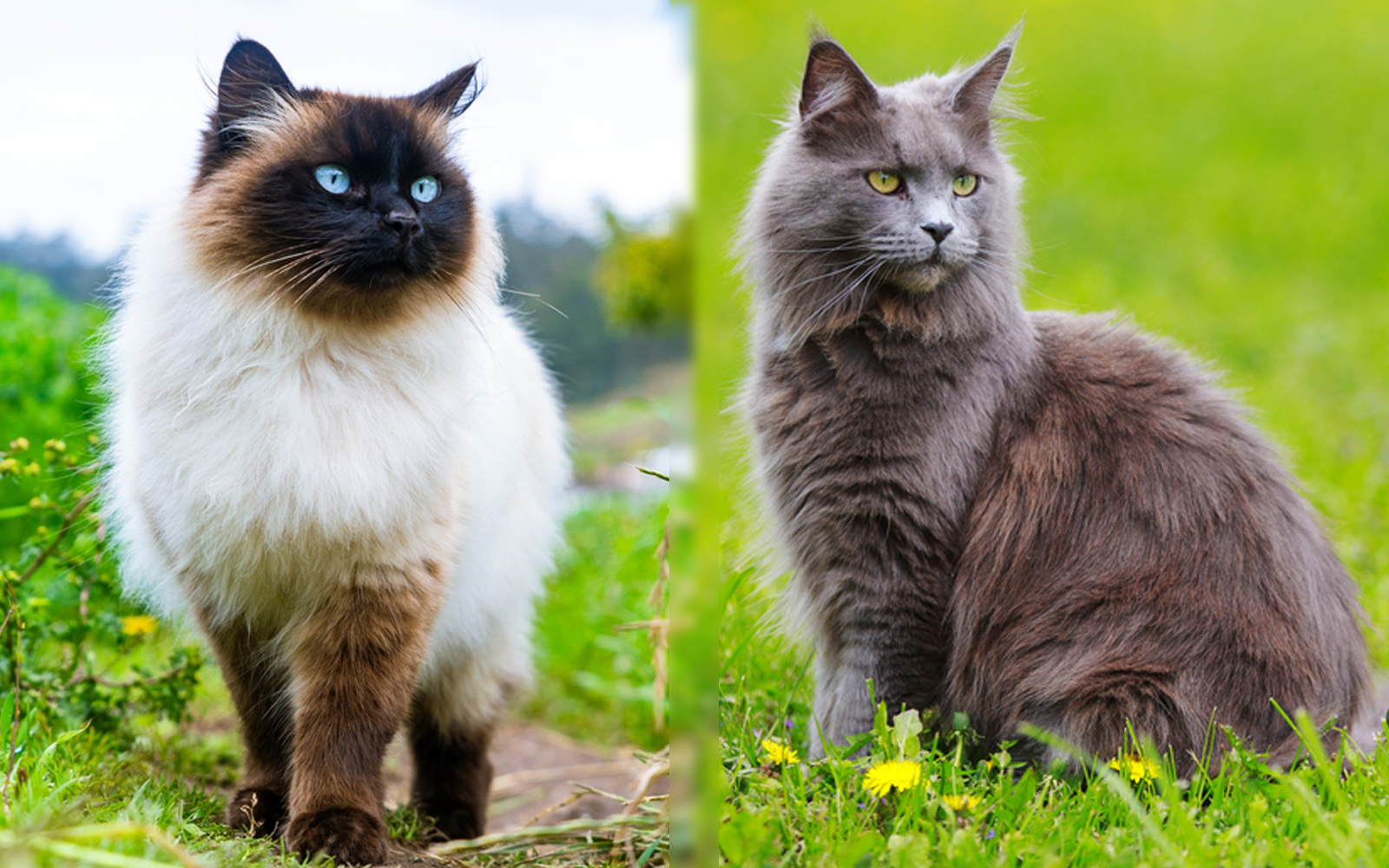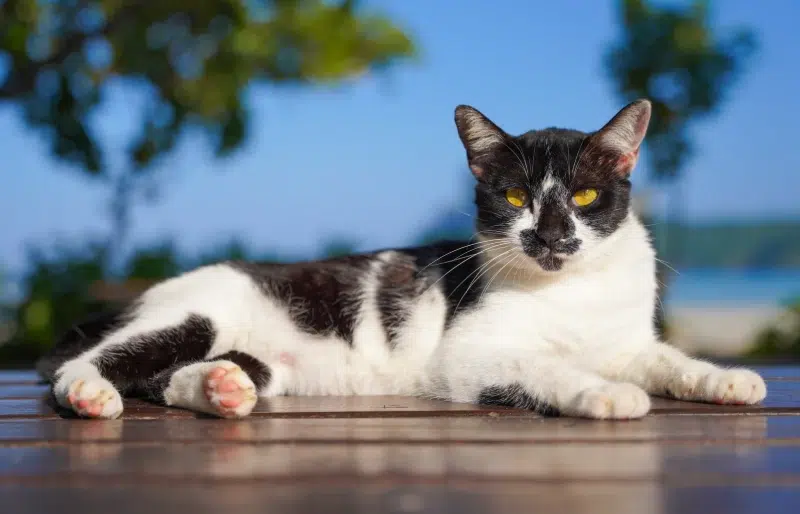Click to Skip Ahead
The Munchkin cat breed is easily one of the most recognizable around. These cute short-legged cats are on the wish list of many cat lovers around the world. With their startling popularity, it’s understandable that potential cat parents would want to learn as much as possible about the breed. Below, we will discuss the history and facts about the Munchkin breed, including the very popular Grey Munchkin cat. This will help ensure that you have all the information you need to determine whether you should bring one of these fun-loving cats into your home.
The Earliest Records of Grey Munchkin Cats in History
Reports of short-legged cats have taken place several times throughout history, especially in the 20th century. These short-legged cats were reported in Britain in 1944. Another report came from Russia around 1956. Yet another was reported in England in the 1970s, while another sighting emerged in Louisiana in the 80s. It was in 1983, however, when a stray cat by the name of Blackberry became known as the mother of the Munchkin breed. She and one of her male kittens were used to breed with domestic shorthairs and long hairs to truly give birth to the Munchkin breed and pass along the natural genetic mutation that makes these small, short-legged cats possible.
How Grey Munchkin Cats Gained Popularity
The Munchkin breed is either a hit or a miss with cat lovers. Some people simply love these pint-sized, playful, and inquisitive cats. Others avoid this breed due to their shortness being caused by a mutation. While the breed comes in multiple colors, patterns, and even hair lengths, one of the most popular is the Grey Munchkin. It’s impossible to determine when this specific color emerged, but what is clear is that fans of the Munchkin breed love Grey Munchkins and eagerly accept them into their homes.
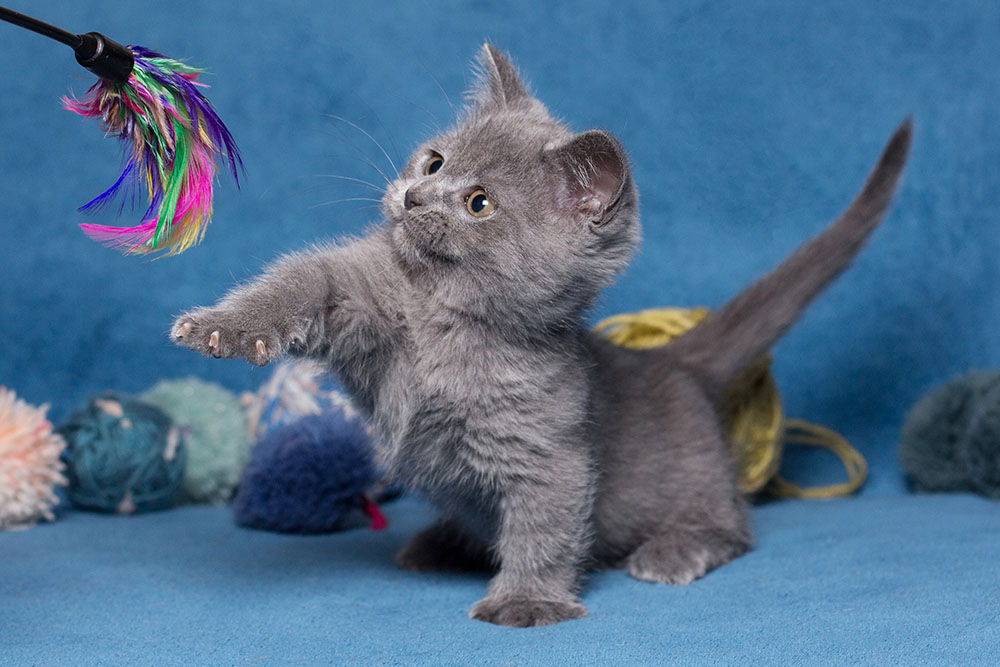
Formal Recognition of Grey Munchkin Cats
When Blackberry birthed the Munchkin breed in 1983, it wasn’t long before The International Cat Society’s new breed development program stepped in. In 1994, they began overseeing breeding and came to discover that the Munchkin’s mutation was a dominant inheritance pattern. By 2003, The International Cat Society officially recognized Munchkin cats as a breed. Other organizations have not followed suit, as many feel the breeding of these cats can be unethical. To successfully breed a Munchkin, it must be bred with another cat that does not have the mutation. The dominance of the mutation will result in a full litter of Munchkin cats. If two Munchkin cats are bred the mutation is heartbreakingly fatal.
Top 3 Unique Facts About Grey Munchkin Cats
While a Grey Munchkin itself is unique, here are three facts you may not know about this cat breed.
1. The Name Comes From The Wizard of Oz
Whether you’ve read the book or watched the movie, surely the Munchkins in The Wizard of Oz have stolen your heart. It’s these short-legged characters that have given the Munchkin breed its name, including the popular Grey Munchkins.
2. Munchkins Can Be Socialites
Socialite and heiress Paris Hilton famously owns two Munchkin cats by the names Shorty and Munchkin. She is even known to call these two her lowrider kitties. If you enjoy following celebs and learning about their pets, these two may make an appearance on Paris’s socials at any time.
3. A Munchkin Holds the Record
According to the Guinness Book of World Records, it is a female Munchkin that holds the record of being the shortest living cat. Her name is Lilieput, and she resides in Napa, CA. At the time she made the record book, she measured in at 5.25 inches from shoulder to the floor.
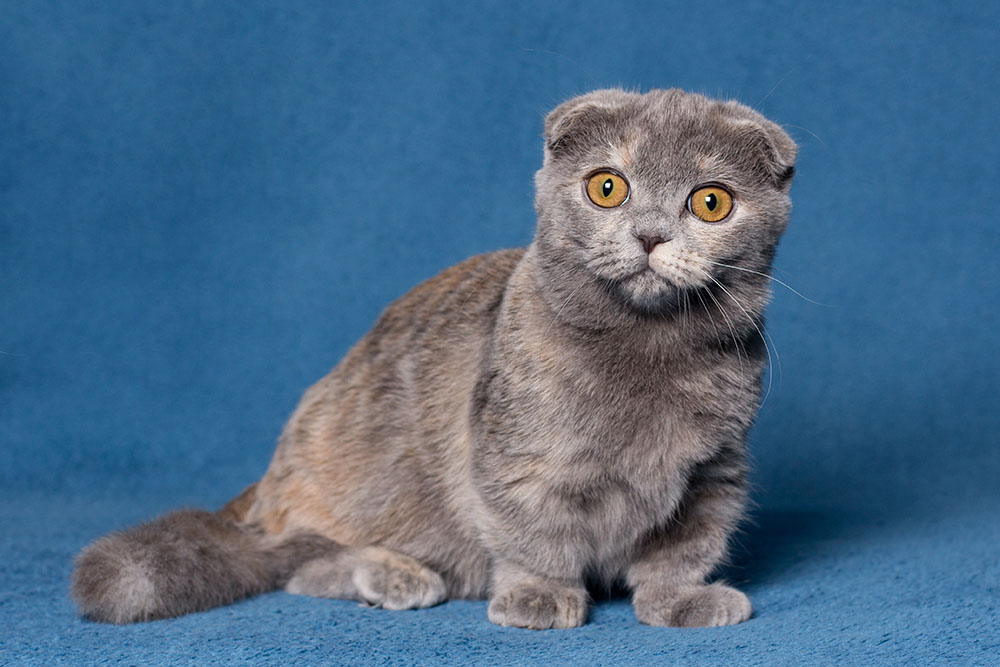
Do Grey Munchkin Cats Make a Good Pet?
Yes, the Grey Munchkin, or any Munchkin for that matter, will make a great pet. These cats are intelligent and friendly. They do well with children and other pets, especially when socialized young. When it comes to their owners, a Munchkin loves to cuddle and show affection, but don’t let that fool you; they love to play, too. Even though they have short legs, they still love to jump and show off their agility. They are even easy to train using a clicker and praise. You can have your Grey Munchkin strolling down the street on a leash or playing fetch in no time.
When it comes to their health, Grey Munchkins are relatively healthy, so far. The breed is still considered new, so more time needs to be taken to determine whether there are any issues stemming from their mutation. Other than that, however, this breed faces the same issues as other cat breeds and requires the same care and attention.
Conclusion
As you can see, the Grey Munchkin is a unique yet adorable cat breed. While they may be short in stature, they are big in personality, fun, and love. If you’ve been debating whether one of these adorable cats is the perfect fit for your home, this breed information and facts should help you learn more so you can better understand these fun felines. When searching for a breeder to find the perfect Grey Munchkin for your family, please choose wisely.
Breeding of these cats results in a genetic mutation that can be fatal if certain precautions and rules aren’t followed. As with any breed of animal, only deal with ethical breeders with good reputations.
Featured Image Credit: Sviatoslav_Shevchenko, Shutterstock

